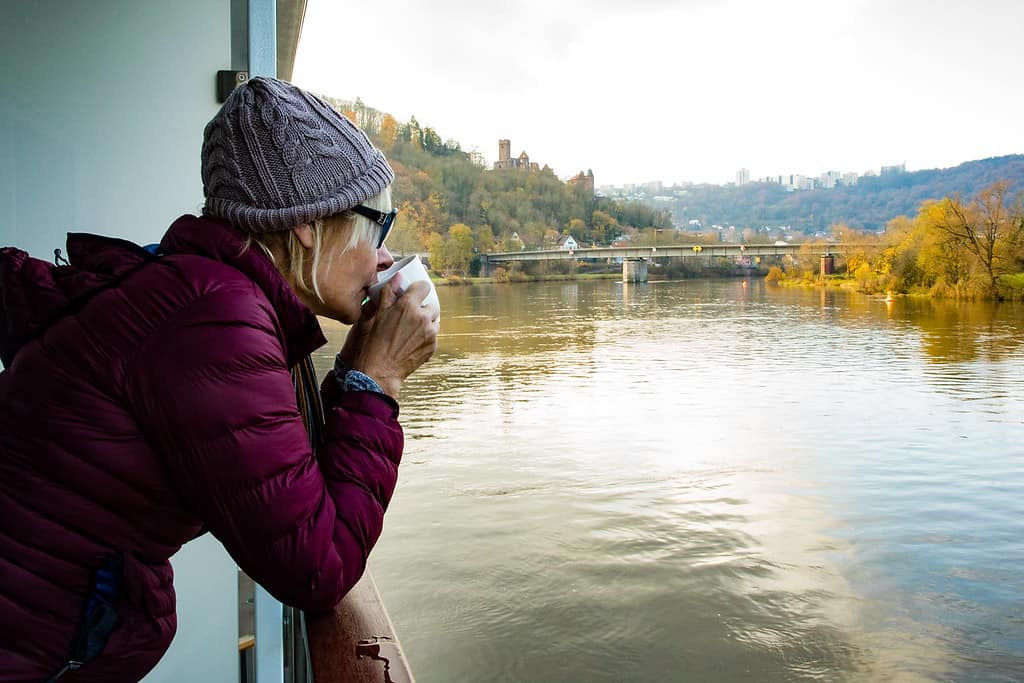Last Updated on: 26th July 2022, 03:12 am
(Update June 2018 – Atalaia, Portugal – After I left Mexico, Wes and I kept in touch and, as travelers often do, we met up again. This time in June 2016, in Chiang Mai, Thailand. We continued our friendship as if no time had passed and had a few more crazy adventures together. When he left Chiang Mai later that summer, I expected that we would meet again soon, somewhere.
Wes died that November at the young age of 47. I miss him and think of him often. It was a treat to have known “Johnny Vagabond,” and his death is a reminder that life is precious and we need to live every day to its fullest. Just like Wes did. This is Wes’s story of this crazy night.)

It seemed like a good idea at the time. My friend Wes Nations and I were looking for an excuse to make a road trip, and the beaches on the Pacific Coast of Chiapas were calling. We choose to go to Puerto Arista because it is a one street town, the kind of place we both like, right on the coast and has a reputation for being fun, laid back and sometimes a little crazy.
We searched for a guest house and found a mellow place right on the beach near a smattering of beach bars, complete with hammocks and very friendly locals. This hotel was no five-star resort, but it fit our needs.
I have always wanted to see sea turtles nesting on the beach and while I in Puerto Arista I discovered this town is the place to see it. While Wes was recovering from an alleged “shrimp allergy,” I decided to go on a quest to see what could be found. After asking around a bit, I was told that I needed to go to Campamento Tortuguero Nuevo Puerto Arista (New Turtle Camp Puerto Arista), about 3 kilometers north of town.
No problem. I manage to find it, but it is after hours, and there is no one around. Not one to be deterred I drive around a little more and discover the state of Chiapas’ Environmental and Natural History agency’s Proteccion y Conversación de la Tortuga Marina en Chiapas. I started nosing around, thinking maybe they could help on my quest.

Proteccion y Conversación de la Tortuga Marina is housed in a nondescript concrete block building on the beach with various storage areas, and utility sheds spread over the approximately three-acre surrounded with chain link. The front gate was locked, but I did see some activity inside. I wander around a bit and let myself in through the back entrance.
There I find Yolanda, one of several college interns who is getting university credit for working with the turtle program. I explained that I was visiting Puerto Arista for only a few days, but it has always been a desire of mine to see sea turtles in the wild. She explained that this was a state of Chiapas project, and there was no official program set up, but if I could come back the next night she would arrange “something.”
Yolanda also advised that we bring warm clothes, rubber boots, rain gear and be prepared to be out all night. Seemed a little strange given the balmy night and starry skies and I told her I didn’t really have that stuff and then joked about how tough I am. She gave me a knowing smile, and I said I would see her mañana.
The next morning Wes, now mostly recovered from his battle with prawns, and I had had a great day exploring the area and driving down to the beach at Pijijiapan where we had a massive lunch of fresh fish and talked to some wonderful folks. As the day wore on and we drove back to Puerto Arista the weather was starting to look a bit iffy. The skies were darkening, there was a fresh wind, and some lightning was flashing in the distance.
We decided to go to have dinner and a couple of beers at one of the roadside street grills that line the main road in the evening, and see what happened. The steak was delicious, the beer was cold, and the weather was getting worse. We decided that the prudent thing to do would be to cancel whatever had been arranged and try again another night; this, of course, that was NOT what we did.
This, whatever “something” was going to be, was too good of an opportunity to pass up and besides, if anything too dangerous was going to happen surely those nineteen-year-old college interns had common sense, right? Wes mumbled something about how this was going to be among the “Top 20” stupidest things he has ever done and we carried on.

We arrived at the compound around nine o’clock, and we were greeted at the front gate by another intern. It seems they were expecting us and he opened the gate so we could park on the grounds. I had no idea why we were being treated with such hospitality. We were basically trespassers from the night before, and they were treating us like invited guests. Yolanda explained that “our ride” whatever that was, would be there soon.
We found some chairs, kicked back and had the kind of small talk that travelers who speak different languages and come from diverse backgrounds have. In the meantime, the storms that had been offshore started creeping inland. Sheet lightning was lighting up the night, but there was no rain yet. We asked if turtles came on shore during lousy weather and consensus seem to be that they like it.
“Our ride” turned out to be bright red four-wheel drive off-road vehicle with Roberto, a biologist with the state of Chiapas driving. Roberto was a friendly guy professional type guy who’s English was only a little bit better than my Spanish. The interns found some cushions for Wes and me to put on the rear fenders, and it was off we go to the south.
Fast! Really fast, with not much to hold on to. Exciting! After about five minutes Roberto stops and starts putting on rain gear. He must have had some meteorological sixth sense because things didn’t look too bad to me. Still a lot of lightning but no rain. Wes did bring a poncho but I, once again, out to prove how tough I am and since I had no rain gear to put on, no choice.
Wes and Roberto were worried about my gear but explained that everything I had was okay to get wet. Technically this was true; my camera was in a waterproof housing, and my clothes had been washed before with no lasting ill effect.

We got back on the four-wheeler and less than a minute later, flash/boom! It was the kind of lightning strike that you hear tearing the sky apart before you see a bright flash and crash of thunder simultaneously. Then almost instantly the heavens opened up with buckets of big fat raindrops and more lightening.
We were all nervously laughing and ducking our heads from the painful stinging of the raindrops. We had to yell to be heard. Wes was screaming something about this being among the “Top Ten” stupidest things he has ever done. Roberto was yelling something that I like to think was reassuring but was probably like, “and you guys are here for fun?”
After a few minutes, even Roberto had had enough, and he found a shelter we could pull under and presumably wait this out. Being under shelter, however, was cold comfort when I started thinking and asking questions. “How much wind can a palapa take before it blows down?” “Is thatch a good conductor of electricity?” “If lightning seeks the highest point are you safe while under it?” “Is this place grounded?”
The storm continued raging, so I figured if we were going to get killed there should at least be some documentation, so I got out my camera. There was so much lightening I could get pictures just by aiming the camera and pushing the shutter. The wind was getting colder, and Roberto was getting restless. He made a call on his walkie-talkie presumably telling someone that we were still alive and going to start moving again.
This didn’t make a lot of sense to me because the weather wasn’t improving. Maybe after all my stupid questions about the palapa, he calculated we would be safer on a tiny metal vehicle on the open beach. Whatever the reason we were moving again at full throttle making “S” turns so the headlights would rake the beach looking for turtle tracks that hadn’t been washed away.
We continued about another hour. Wes said something about this now being among the “Top Five” stupidest things he has ever done. We went past Puerto Arista, past some outlying beach houses, past the last of the electrical lines, past the point to where we could hobble back to town if something bad happened. We were in the middle of nowhere, on a beach in Mexico, driving full blast on an open four-wheeler, in lightning and a tropical deluge. We loved it!

Finally, we slowed and stopped. Roberto got out his spotlight but didn’t see anything. We turned back north and started weaving our way back down the beach. There was still a lot of lightning in the area, but nothing too dangerously close anymore. The rain was starting to let up also. Suddenly Roberto flipped off the headlights and braked hard and turned to the right.
He got off the four by four and pointed at something in the distance. It was hard to see her in the dark, but when lightning flashed, there she was; a big Olive Ridley Sea Turtle lumbering slowly up onto the beach.
At this point, we couldn’t get too close. She had had just exited the water, and a disturbance could cause her to go back. I have seen sea turtles in the water before, and they are efficient and graceful swimmers. Moving about on land is a struggle for them. She slowly dragged herself to about 20-meters from the waterline and began laboriously digging a nest.
We couldn’t turn on lights, so we just waited and watched her from about 30 meters away. After half an hour or so she moved. She wasn’t, happy with the location she had chosen for the nest. Again, she dragged herself another 20-meters or so, this time into the dunes, and began digging another nest. This time after another half hour of digging she started laying eggs. At this point, Roberto told us it was okay to approach.

She was beautiful and tired. I could hear her breathing as she began depositing eggs into the sandy nest. It was almost like she was in a trance. Roberto began measuring her and recording details while Wes and I just watched in awe. One and sometimes two at a time she laid these pure white, ping pong ball sized, eggs into the nest.
She seemed to be unaware of our presence. After a while, Roberto reached beneath her into the nest and began gathering her precious eggs. The beach near Puerto Arista is unprotected and vulnerable to poachers, so these eggs were to be relocated to an incubator back at the facility. I was permitted to gather a few eggs myself.
They felt quite dense with a leathery shell and warm. After twenty minutes or so she was finished. She had delivered 95 eggs in total. Her exhaustion or trance was so deep that she was unaware that we had taken her eggs and she began to cover the now empty nest with sand.

We left her there to return to the ocean and began again driving south toward the conservation office. The sky skies were again filled with beautiful sheet lightning but nothing too close or threatening. In some spots, you could just begin to see pinpoints of stars. The wind was a little brisk, but by the time we got back to the facility, I was almost dry again.
We entered the office and went into the incubator; just a roof over beach sand with dozens of markers indicating the location of eggs gathered on previous nights. With a post hole digger, Roberto dug a hole about two feet deep and began depositing the eggs we had gathered. He then covered the hole and compacted the sand, quite tightly, over the top. In about two months these eggs, and the others they will gather on other nights, will hatch and the baby turtles will be returned to the same spot on the beach where they were laid and guarded while they make their way into the Pacific.
This night was a clear reminder of the positive changes I have made in my life. Riding a four-wheeler in a thunderstorm might not be the smartest thing for a new retiree, or anyone else, to do but it was a reminder that security is an illusion and if you let fear control your life you won’t spend a lot of time living it.
Trading comfort, convenience, and possessions for a life filled with experiences and adventure have, for me, proven to be the right decision. It was also a reminder that life isn’t going to come looking for you. You need to seize it. Time is the most precious thing that we have and spending it in pursuit of things that don’t matter is a waste of life.








Sounds like great fun to me! But I would take the rain gear!
What an amazing adventure. and I totally agree- life isn’t going to come for you, you have to go get it.
Wow, what a story. And what an incredible experience to watch a sea turtle lay her eggs on the beach!
Firstly, I’m really sorry to hear about the loss of your friend, Wes, so young too. But I love stories like this & have no doubt that he would love reliving the mad experience you shared together. For me, this is what travelling is all about. Saying yes to mad opportunities & having a story to tell afterwards. I am so jealous of this experience & what a privilege it must have felt to witness this beautiful creature laying her eggs. Seeing a turtle lay eggs or hatch is something I would love to do. On Langkayan Island in Borneo, I almost made it. We had the opposite of a “Do not disturb” sign hanging outside our door so they would knock if any turtles were hatching but unfortunately it didn’t happen. Thanks for sharing – I enjoyed your story a lot!